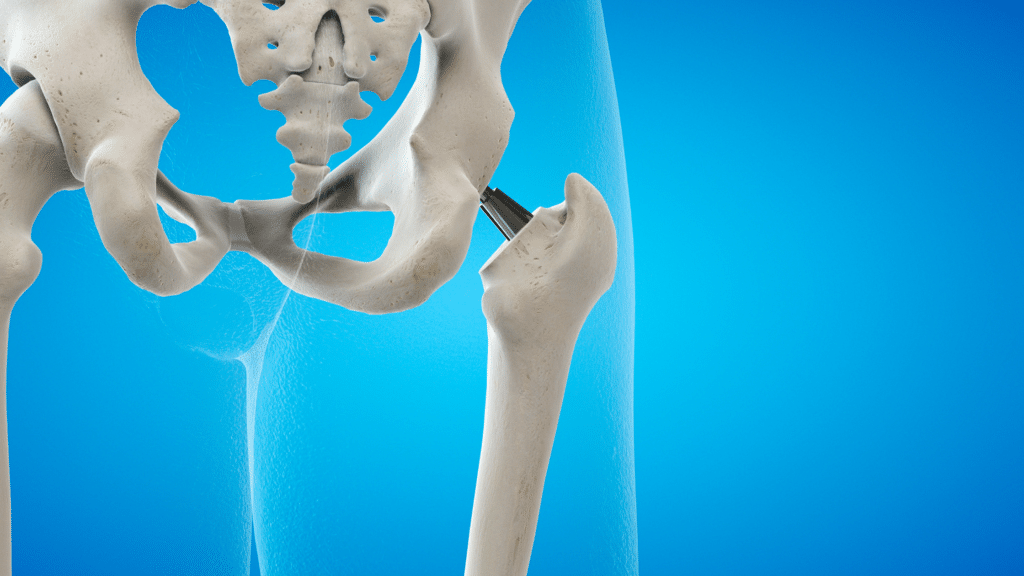Hip surgery can be a life-changing event, often requiring significant adjustments to one’s daily routine and lifestyle. Whether you’ve undergone a total hip replacement, hip resurfacing, or any other type of hip procedure, embracing the necessary lifestyle changes to ensure a successful recovery and improve your overall well-being is crucial.
Introduction to Hip Surgery and Its Impact on Lifestyle
Hip surgery, such as total hip replacement or hip resurfacing, is a common orthopaedic procedure performed to address a variety of hip-related issues, including arthritis, fractures, or other degenerative conditions. While these surgical interventions can provide relief from pain and restore mobility, they also significantly impact an individual’s lifestyle.
After hip surgery, patients often face a range of physical, dietary, and emotional challenges as they navigate the recovery process. Acknowledging and proactively addressing these changes can greatly improve the outcome and help patients regain their independence and quality of life.
Importance of Lifestyle Changes After Hip Surgery
Embracing lifestyle changes after hip surgery is essential for a successful recovery and long-term well-being. These changes can help alleviate pain, prevent complications, and facilitate a smoother transition back to everyday activities. By making informed decisions and adopting a holistic approach to their recovery, patients can maximize their chances of achieving their desired outcomes and return to an active, fulfilling lifestyle.
Physical Activity and Exercise Post-Hip Surgery
One of the most significant lifestyle changes after hip surgery is the incorporation of a tailored exercise regimen. Physical activity plays a crucial role in the recovery process, as it helps to strengthen the muscles, improve range of motion, and promote overall healing.
In the early stages of recovery, patients may be advised to engage in low-impact exercises, such as walking, stationary cycling, or gentle stretching, under the guidance of a physical therapist. As the recovery progresses, the exercise program can be gradually increased in intensity and duration, with the goal of gradually restoring full mobility and function.
It’s important for patients to work closely with their healthcare team to develop an exercise plan that aligns with their individual needs and capabilities, taking into account factors such as the type of surgery, the extent of the injury, and any pre-existing medical conditions.
Developing a Personalized Exercise Routine
- Work with a physical therapist to create a comprehensive exercise plan that addresses your specific needs and goals.
- Start with low-impact exercises, such as walking, pool-based activities, or using a stationary bike, and gradually increase the intensity and duration as you progress.
- Incorporate strength-training exercises to build muscle and support the affected hip joint.
- Perform balance and stability exercises to improve coordination and reduce the risk of falls.
- Engage in regular stretching and flexibility exercises to maintain and improve range of motion.
- Monitor your progress and be willing to adjust your exercise routine as needed, in consultation with your healthcare team.
Dietary Changes for Optimal Recovery
Proper nutrition plays a vital role in the recovery process after hip surgery. A well-balanced diet can help support the body’s natural healing mechanisms, promote bone and muscle health, and manage any post-surgical complications.
Patients should focus on consuming a diet rich in proteins, vitamins, and minerals to aid in tissue repair and regeneration. This may include incorporating more lean proteins, such as poultry, fish, or plant-based sources, as well as fruits, vegetables, and whole grains.
It’s also important to stay hydrated and maintain a healthy weight throughout the recovery period, as excess weight can put added stress on the hip joint and potentially slow down the healing process.
Dietary Recommendations for Post-Hip Surgery Recovery
- Increase protein intake to support muscle repair and bone healing.
- Ensure adequate intake of calcium and vitamin D to promote strong bones.
- Consume a variety of fruits and vegetables to provide essential vitamins and minerals.
- Stay hydrated by drinking plenty of water throughout the day.
- Limit processed foods, sugary drinks, and high-fat items that can hinder recovery.
- Work with a registered dietitian or your healthcare team to develop a personalized nutrition plan.
Managing Pain and Discomfort After Hip Surgery
One of the primary challenges after hip surgery is managing pain and discomfort. Patients may experience various levels of pain, swelling, and stiffness, which can impact their ability to perform daily activities and engage in rehabilitation.
Effective pain management strategies, such as using prescribed medications, applying ice or heat, and incorporating relaxation techniques, can help alleviate these symptoms and facilitate a smoother recovery.
It’s crucial for patients to work closely with their healthcare team to develop a comprehensive pain management plan and to communicate any changes or concerns they may have during the recovery process.
Strategies for Managing Pain and Discomfort
- Follow the pain medication regimen prescribed by your healthcare provider.
- Apply ice packs or heat therapy to the affected area as directed.
- Engage in gentle stretching and range-of-motion exercises to help reduce stiffness.
- Practice relaxation techniques, such as deep breathing, meditation, or gentle yoga, to manage pain and stress.
- Utilize assistive devices, such as crutches or a walker, to reduce the load on the hip joint.
- Communicate any changes in pain or discomfort to your healthcare team to ensure proper adjustments to your treatment plan.
Mental and Emotional Well-being During the Recovery Process
The recovery process after hip surgery can be physically and emotionally challenging, as patients navigate a new reality and adapt to the limitations imposed by their condition. Addressing the mental and emotional aspects of recovery is crucial for a successful outcome.
Patients may experience a range of emotions, including frustration, anxiety, or depression, as they adapt to their new lifestyle. It’s important for them to seek support from their healthcare team, family, and friends, and to engage in activities that promote mental and emotional well-being, such as counseling, support groups, or mindfulness practices.
By prioritizing their mental and emotional health, patients can better cope with the physical demands of recovery, maintain a positive outlook, and ultimately achieve a higher quality of life.
Strategies for Maintaining Mental and Emotional Well-being
- Seek support from a mental health professional, such as a therapist or counselor, to address any emotional challenges.
- Participate in support groups, either in-person or online, to connect with others who have undergone similar experiences.
- Engage in relaxation techniques, such as meditation, deep breathing, or gentle yoga, to manage stress and anxiety.
- Maintain a regular sleep routine and ensure adequate rest to support the body’s natural healing processes.
- Pursue hobbies, activities, or social engagements that bring you joy and a sense of purpose.
- Communicate openly with your healthcare team about your emotional well-being and any concerns you may have.
Follow-up Care and Rehabilitation After Hip Surgery
Successful recovery after hip surgery requires a comprehensive, long-term approach that includes regular follow-up care and a dedicated rehabilitation program. Patients should work closely with their healthcare team, including orthopaedic surgeons, physical therapists, and other specialists, to develop and adhere to a personalized rehabilitation plan.
This plan may involve a combination of physical therapy exercises, mobility training, and the use of assistive devices, such as crutches or walkers, to gradually restore strength, flexibility, and independence. Regular check-ups and monitoring of the surgical site, as well as any necessary adjustments to the rehabilitation program, are crucial for ensuring a positive outcome.
By actively participating in their follow-up care and rehabilitation, patients can maximize their chances of a full recovery, minimize the risk of complications, and ultimately achieve their desired level of function and quality of life.
Elements of Effective Follow-up Care and Rehabilitation
- Attend all scheduled follow-up appointments with your orthopaedic surgeon and other healthcare providers.
- Participate in a comprehensive physical therapy program, following the guidance of your physical therapist.
- Use any prescribed assistive devices, such as crutches or walkers, as directed by your healthcare team.
- Gradually increase the intensity and duration of your physical activity and exercises as you recover.
- Communicate any concerns or changes in your condition to your healthcare team promptly.
- Adhere to any dietary or lifestyle modifications recommended by your healthcare providers.
Conclusion: Embracing a New and Improved Lifestyle After Hip Surgery
Undergoing hip surgery can be a life-changing event, but with the right mindset and a commitment to making the necessary lifestyle changes, patients can emerge from the recovery process stronger, more resilient, and better equipped to enjoy an active, fulfilling life.
By prioritizing physical activity, maintaining a balanced diet, managing pain and discomfort, and addressing the mental and emotional aspects of recovery, patients can not only achieve a successful outcome but also develop a renewed appreciation for their overall health and well-being.
If you or a loved one are facing hip surgery, take the first step towards a successful recovery by consulting with a trusted orthopaedic specialist. Contact us today to schedule an appointment and learn more about the personalized lifestyle changes that can help you thrive after your procedure.

